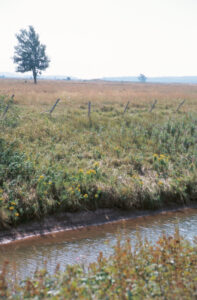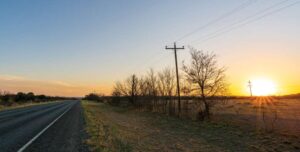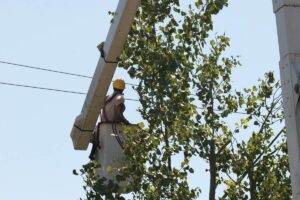 The Illinois Farm Bureau® (IFB) has carefully analyzed the proposal to change the Clean Water Act that the United States Environmental Protection Agency (EPA) and the U.S. Army Corps of Engineers (Corps) published in the Federal Register on April 21. In doing so, we have concluded that it broadly expands federal jurisdiction, threatens local land-use and zoning authority and is an end-run around Congress and the Supreme Court.
The Illinois Farm Bureau® (IFB) has carefully analyzed the proposal to change the Clean Water Act that the United States Environmental Protection Agency (EPA) and the U.S. Army Corps of Engineers (Corps) published in the Federal Register on April 21. In doing so, we have concluded that it broadly expands federal jurisdiction, threatens local land-use and zoning authority and is an end-run around Congress and the Supreme Court.
The proposed rule would categorically regulate as “navigable waters” countless short-lived drains, ditches and other features across the countryside — features that are wet only when it rains and features that may be miles from the nearest truly “navigable” water.
These federal agencies use scientific-sounding terms when referring to these features — terms such as “bed, bank and ordinary high water mark” to give the impression that the proposed rule would apply only to features that are always wet. However, such terms also define a low spot on the land with subtle changes in elevation, land where rainwater naturally channels as it flows downhill after rainstorms.
The EPA calls any such feature a “tributary.” This land is not even wet most of the time, and it is prevalent across Illinois and the entire country. The EPA says the rule does not cover ditches, but that is simply not true. The proposed rule as written would categorically regulate all so-called tributaries that ever carry any amount of water that eventually flows to a “navigable” water. Exemptions do exist for some ditches, but in reality, those exemptions are extremely limited and rarely, if ever, could be used.
The federal agencies also propose to regulate “waters” (and land) that are adjacent to any newly defined “water of the U.S.” They also add a new category of “other waters.” This could, and likely will, sweep into federal jurisdiction vast numbers of small, isolated wetlands, ponds and similar features — many that are not “waters” under any common understanding of that word.
The EPA is deliberately misleading the regulated community about the impacts on land use. If more people knew how regulators could use the proposed rule to require permits for common activities on dry land, or penalize landowners for not getting them, they would be outraged. That is why the Illinois Farm Bureau has been working with a broad coalition of organizations on the state level, including the Association of Illinois Electric Cooperatives, who are opposed to this proposed rule. The coalition has been sharing information, and jointly speaking with the media about its concerns.
The Illinois Farm Bureau believes this proposed rule would be the broadest expansion of regulatory control over land use and private property ever attempted by a federal agency. It takes away land-use decisions from state and local governments. It goes against the intent of Congress and the Supreme Court.
The bottom line for farmers is that the proposed rule will make it much more difficult, and potentially impossible, to farm near these land features. That same challenge would exist for other businesses, including electric cooperatives and other landowners.
IFB will continue its efforts to fight back in opposition to the proposed rule and to request that the EPA, and Congress, “Ditch the Rule.” For more information, log on to http://ditchtherule.fb.org








